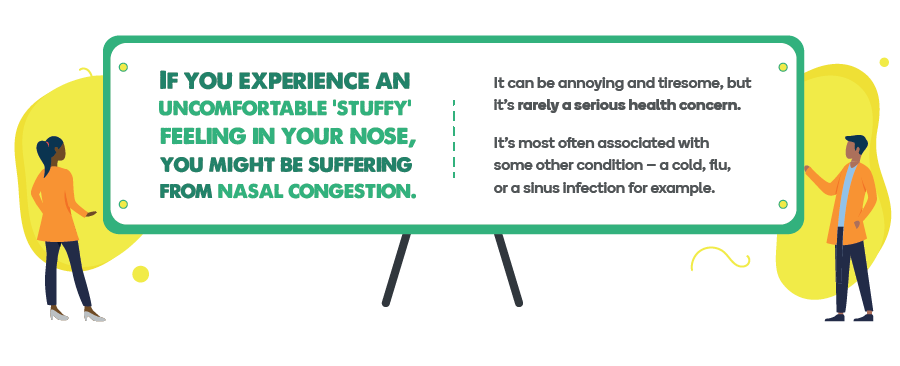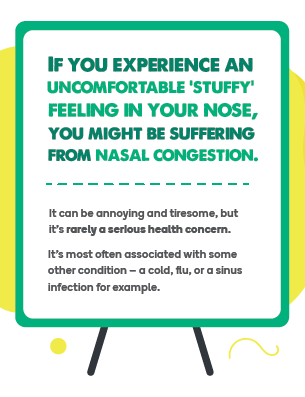

Nasal congestion associated with colds, flu, and sinus infections is usually short-lived. But if symptoms linger for more than a week or so, there could be another underlying issue that may need a different kind of treatment. Conditions to consider would include allergies or hay fever. Or even a polyp (a non-cancerous growth) in the nasal passage.
With allergies a potential factor for nasal congestion, triggers will include exposure to irritants in the environment, or chemicals in products.









An over-the-counter decongestant or nasal spray can help. If you’re suffering with an allergy, you may find relief from taking an oral antihistamine. Ask a pharmacist for help if you’re unsure.
Sometimes, home remedies aren’t the answer. If, despite home care, you’re still in a lot of discomfort and it’s affecting your daily activities, you may need further treatment. You might have a longer-term or more significant health issue.

has lasted over
10 days

lasting more than
3 days

discharge with sinus
pain and fever

immune system,
asthma or
emphysema

with bloody or a
constant flow of
clear nasal discharge


